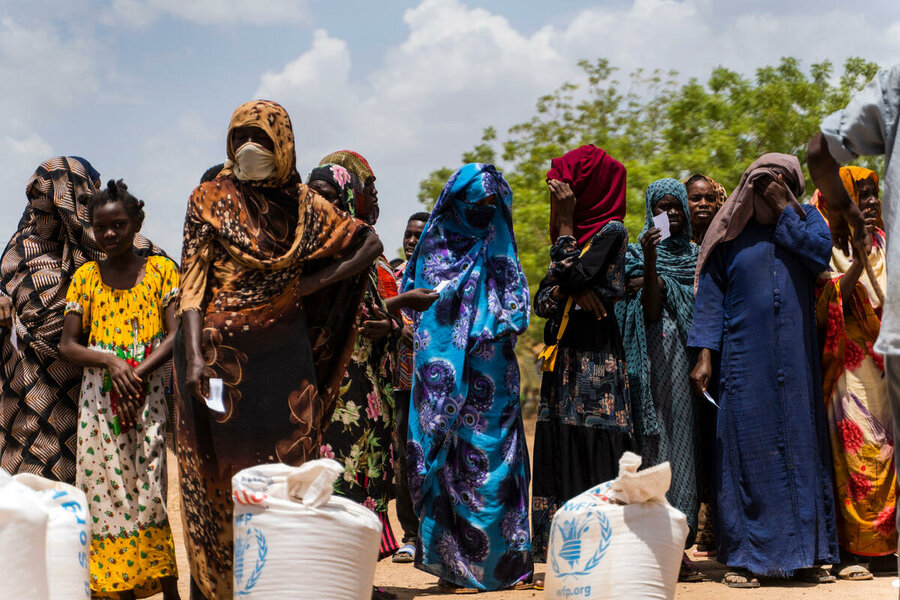
"We fled into the unknown with no destination in mind," says Awadeya Mahmoud, describing the night in April when the sound of an explosion woke up her family of ten. By dawn, they and the people living near them in their south-Khartoum neighbourhood decided enough was enough, and fled the capital.
A worsening security situation is making it increasingly difficult for the World Food Programme (WFP) to reach the 6.3 million people it intends to this year. Since conflict broke out in the country on 15 April, it has reached 1.5 million with critical supplies, including 40,000 children aged under-5, pregnant and breastfeeding women.
In Chad, as in Sudan, tragic stories and soaring needs
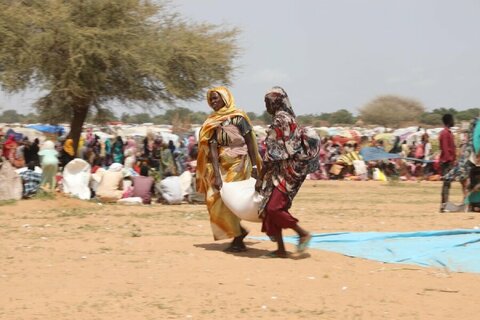
Two days after the bombing, Mahmoud and her children made it to Albageir village in Gezira state.
"The war displaced my whole family and my children never healed from the horror they felt," she recalls. "They refused to eat or drink. They were just crying."
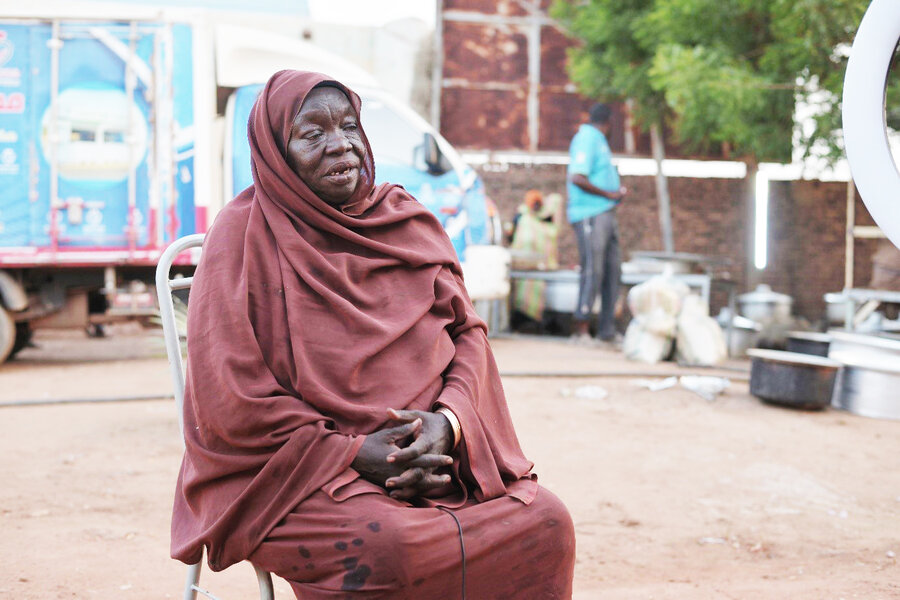
At the time, the family were out of money and had to sell what belongings they could to finance their journey to safety. "I fled my home together with my neighbours to arrive in Albageir [village] before reaching Wad Madani," says Mahmoud, who leads a cooperative of women caterers, including tea vendors like herself.
"I had to sell [many of] my belongings to be able to take my family to safety," she says.
Continued fighting in Sudan poses a threat to the current planting season and to farmers who are already struggling to cope with soaring prices of fertilizers and seeds.
When Mahmoud and her neighbours arrived in Madani, 186km from home, finding a place to sleep was extremely difficult. The city was already filled with displaced people from the capital, Khartoum. Luckily, the families she had arrived with found a house to cram into with a total of 37 children.
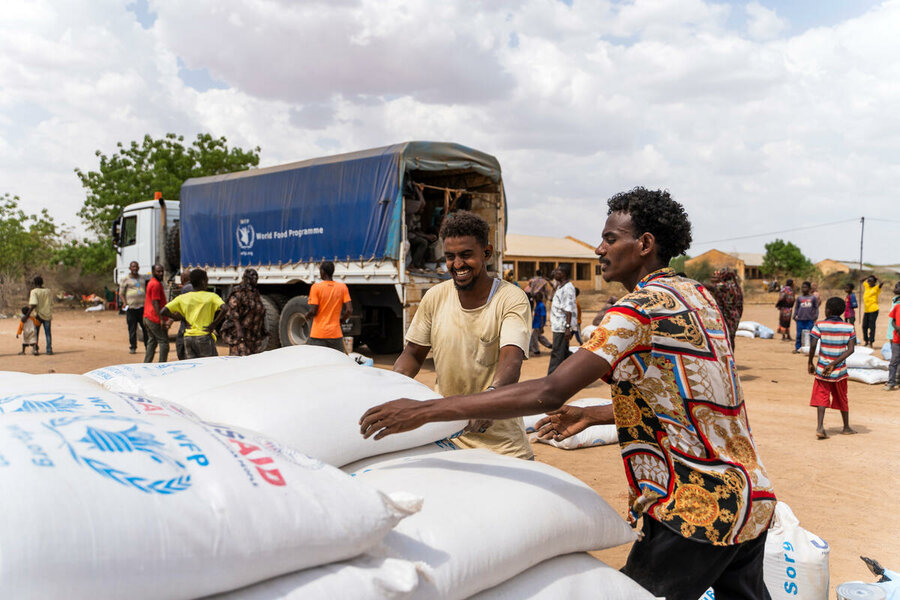
With basic shelter in place, the problem of hunger persists. A third of Sudan's population was already food-insecure before the war, according to WFP.
"We seriously suffered, we had a food problem and some of the children suffered from fevers and measles," says Mahmoud.
She is among 24,606 people that WFP has assisted in Madani through its new hub in the city.
Using food from WFP, Mahmoud put her skills to work and started cooking for fellow displaced people.
"We are on full stomachs now," she says of the families who escaped with hers. "I was given flour, oil, and yellow split beans. WFP helped the people to make meals with the assistance that they provided, and they gave children special nutritious supplementary food", she adds.
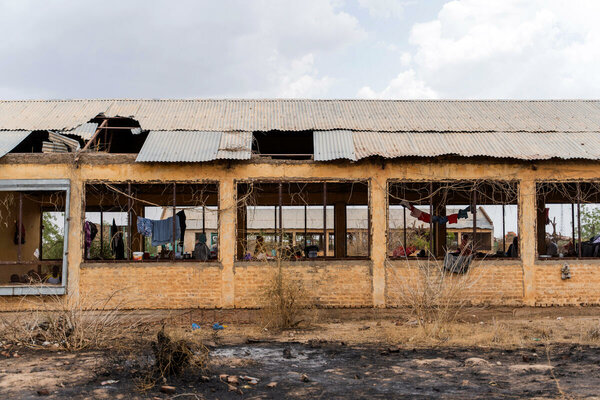
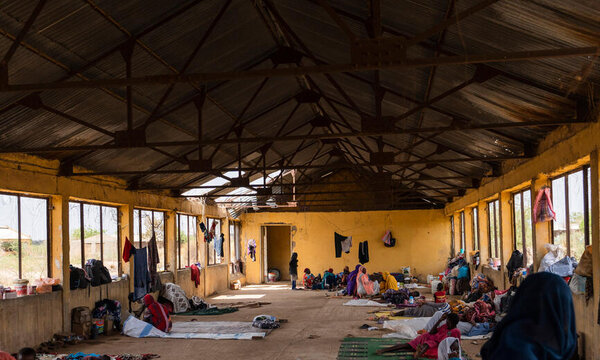
Gezira is among 14 of the 18 states where WFP has assisted people in the past few months, alongside, for the first time, the River Nile and White Nile states.
While many people have made it safely out of Khartoum, thousands of families remain trapped in conflict areas with no access to food and other basic needs. "My cooperative alone has 150,000 members and I am hoping that WFP will be able to help them," says Mahmoud.
"What WFP is doing is not easy. It's what we need the most in Sudan because you're mobilizing food around the world for people," says Mahmoud.






